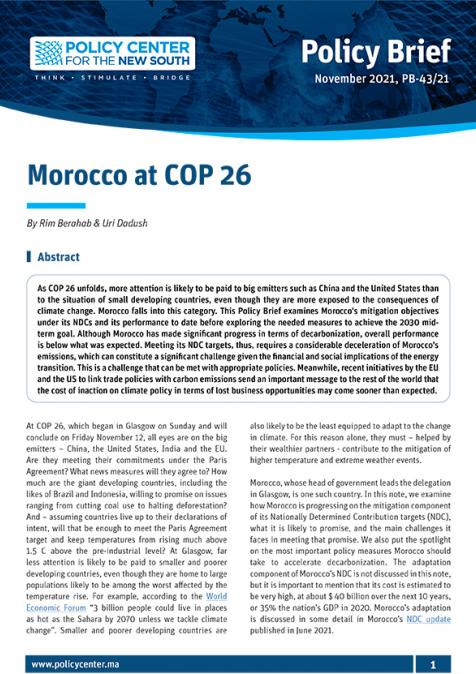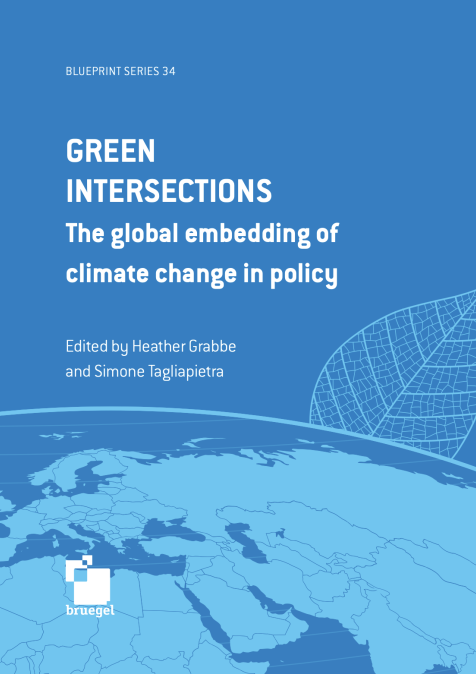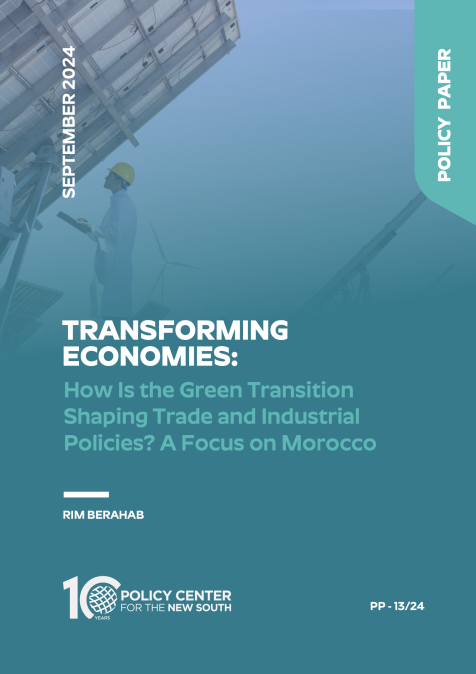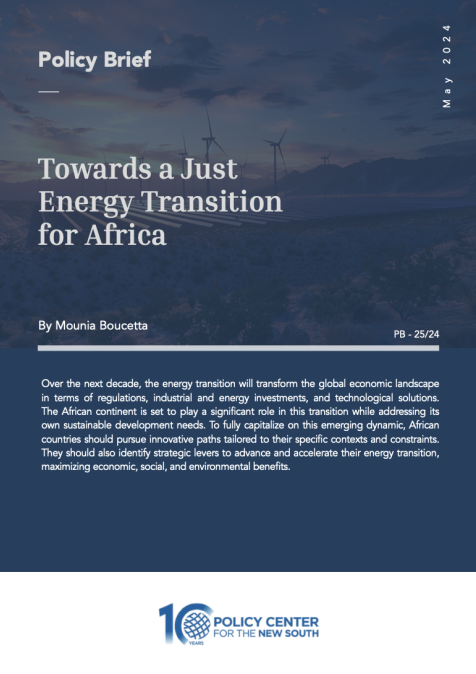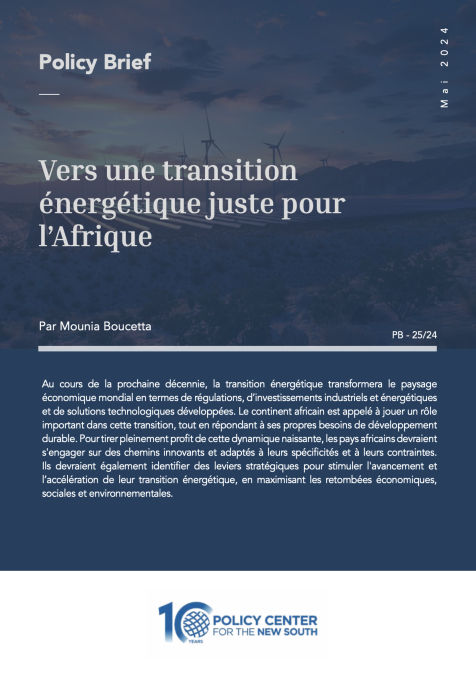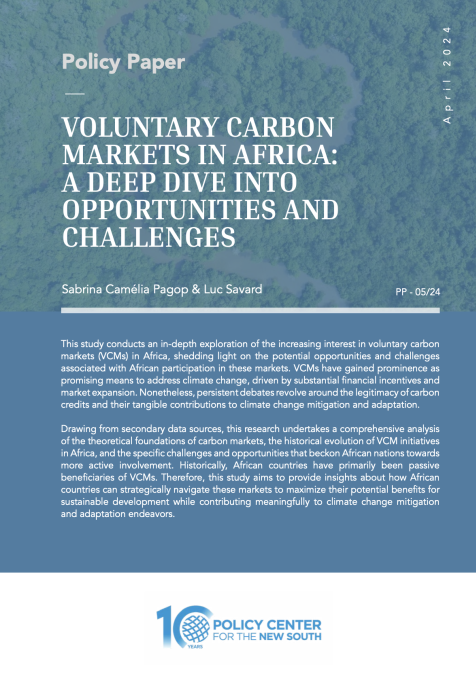Publications /
Policy Brief
As COP 26 unfolds, more attention is likely to be paid to big emitters such as China and the United States than to the situation of small developing countries, even though they are more exposed to the consequences of climate change. Morocco falls into this category. This Policy Brief examines Morocco's mitigation objectives under its NDCs and its performance to date before exploring the needed measures to achieve the 2030 mid- term goal. Although Morocco has made significant progress in terms of decarbonization, overall performance is below what was expected. Meeting its NDC targets, thus, requires a considerable deceleration of Morocco's emissions, which can constitute a significant challenge given the financial and social implications of the energy transition. This is a challenge that can be met with appropriate policies. Meanwhile, recent initiatives by the EU and the US to link trade policies with carbon emissions send an important message to the rest of the world that the cost of inaction on climate policy in terms of lost business opportunities may come sooner than expected.

